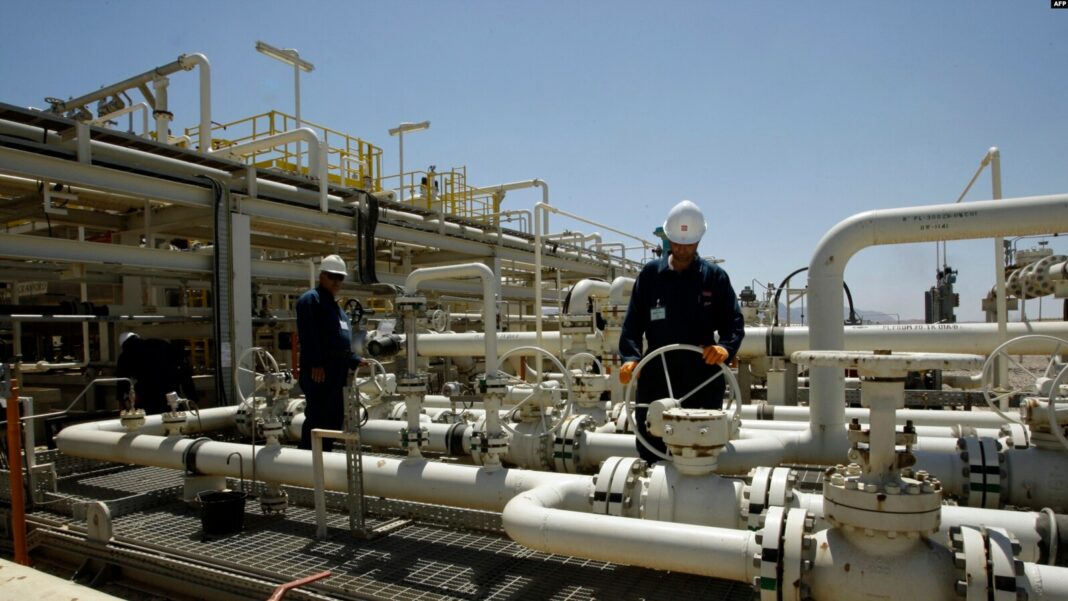Turkey has defended itself in a case brought against it by Iraq at the International Chamber of Commerce’s (ICC) International Court of Arbitration by stating that its trade of oil with the Iraqi Kurdistan Regional Government (KRG) was necessary to prevent the Islamic State in Iraq and the Levant’s (ISIL) genocide of the Yazidis, a defense the court rejected, saying the oil trade began before the Yazidi genocide and that it still continues, according to an exclusive report by the Kısa Dalga news website.
According to the report, citing the arbitration court’s decision, Turkey argued that Iraq had not closed the pipelines while it could and that Iraq’s demands were malicious and contrary to the purpose of the oil pipeline agreements. Turkey also claimed that the KRG’s oil revenues were the main source of financing for the Kurdish Peshmerga forces fighting against ISIL and that it had a duty under international law to help prevent genocide.
Iraq countered Turkey’s defense by arguing that Turkey failed to demonstrate any jus cogens (peremptory norm of international law) to prevent genocide and that the Peshmerga forces did not actually fight ISIL to prevent the Yazidi genocide. Iraq also pointed out that Turkey had not provided any evidence that the revenue from the sale of oil transported from the KRG were used to finance Peshmerga forces.
The court rejected Turkey’s defense, stating that Turkey’s oil trade with the KRG was not initially intended to prevent the genocide and continued after the genocide ended. The court emphasized that the obligation to prevent genocide, even if it has jus cogens status, would not excuse non-compliance with other binding international legal obligations.
Dr. Mehmet Karlı, an expert in international arbitration law and faculty member at Oxford University, spoke to Kısa Dalga and called Turkey’s defense “shameful” for turning such a sensitive issue as genocide into a defense for a trade dispute.
The court had ordered both parties to compensate each other in a long-standing case related to Iraq’s claim that Turkey violated a joint agreement by allowing the KRG to export oil through the pipeline to the Mediterranean port of Ceyhan without its consent.
Turkey said the court had recognized most of its demands, but the court also ordered Iraq to compensate Turkey for several violations concerning the case.
The arbitration ruling prompted Turkey to halt oil flow in the pipeline to the Turkish port of Ceyhan, corresponding to about 0.5 percent of global supply.
The halt to exports through a pipeline to Ceyhan had left foreign oil companies with nowhere to pump Kurdish oil.
Norway’s DNO, one of the main firms operating in Iraqi Kurdistan, announced it was halting production at its wells.
Prior to Ankara’s action, the autonomous region was exporting roughly 450,000 barrels per day (bpd) of crude.
Oil exports are the key revenue source for both the federal and regional governments, and their management has long been a sensitive topic in relations.
The Kurdistan government sees Baghdad as trying to profit from the region’s resources, while the Iraqi government argues it should enjoy sovereign control over all the country’s oil production.
Iraq, the second largest producer in the Organization of the Petroleum Exporting Countries (OPEC), exports an average of 3.3 million bpd.
Iraq’s federal government and the KRG signed a temporary agreement last week allowing northern oil exports through Turkey to restart, but flows have not started, according to shippers, Daily Sabah reported. The Iraqi government has recently filed a petition with a US federal court to enforce the arbitration award against Turkey.
Turkey’s oil trade with the KRG has been the subject of a long-running dispute between Turkey and Iraq, with Iraq accusing Turkey of stealing its oil. Turkey has denied the accusations and has continued to import oil from the KRG, despite objections from Iraq.


